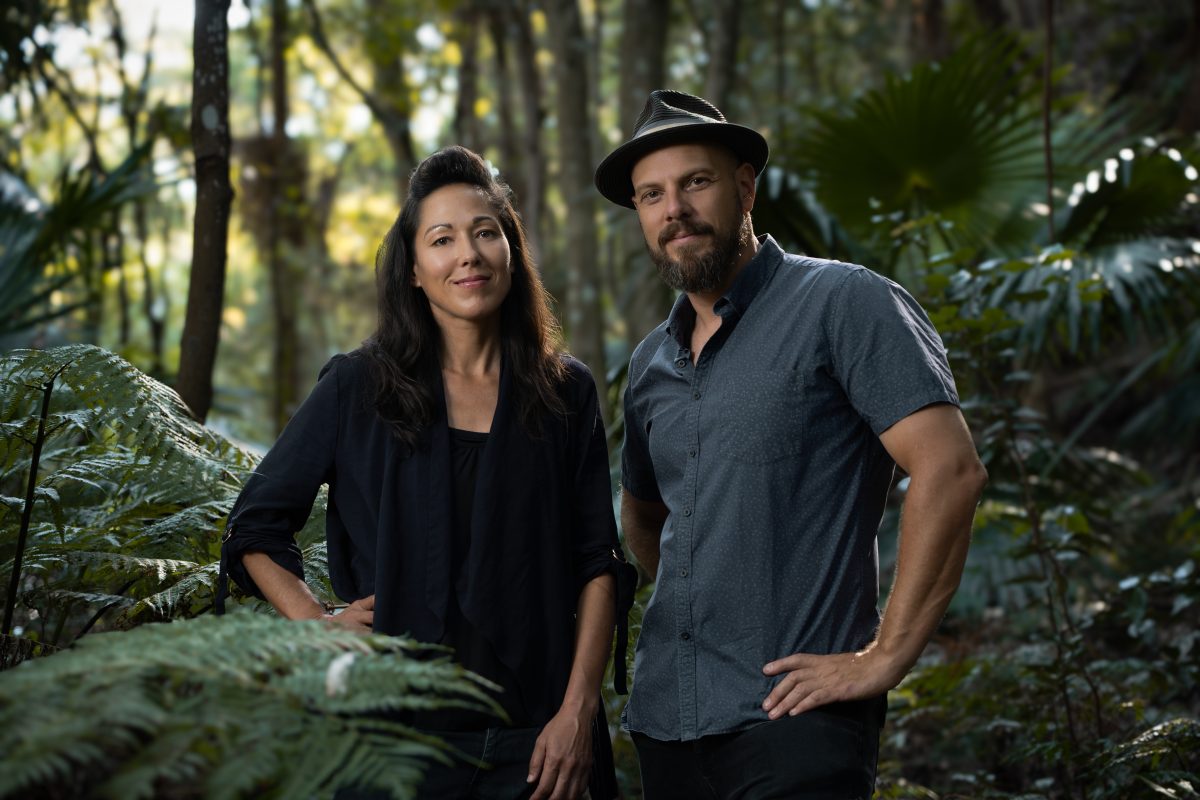
Kirsty B. Carter and Joe Harrison of ethical film and video production company Painting in Pictures have just won the prestigious grand film prize in the Musk Foundation’s XPRIZE Carbon Removal challenge. Photos: Painting in Pictures.
What does whale poop have to do with climate change? A great deal more than you’d imagine, according to an environmental documentary produced by Thirroul-based filmmakers that has just won a major prize funded by Elon Musk’s Musk Foundation.
Kirsty B. Carter and Joe Harrison of ethical film and video production company Painting in Pictures were commissioned to film WhaleX, bringing critical environmental issues to the fore and showcasing the Illawarra’s talent on a global platform.
The 7.5-minute documentary has just won the prestigious grand film prize in the Musk Foundation’s XPRIZE Carbon Removal challenge – a $100 million global competition aimed at fostering innovative solutions for extracting carbon from the atmosphere or oceans.
More than just a film, WhaleX is billed as “a journey into the heart of the climate crisis, showcasing an ingenious solution inspired by nature itself”.
This short doco captivates audiences with its exploration of the role of whales in carbon sequestration.
It explains how whale faeces provide the nutrients that feed phytoplankton, which in turn not only play a significant role in the food chain but can also store carbon for hundreds to thousands of years and produce an estimated 50 to 80 per cent of the oxygen in the atmosphere.
Recognising this crucial role, Australian scientists are exploring a novel approach involving artificial whale excrement to stimulate phytoplankton growth.
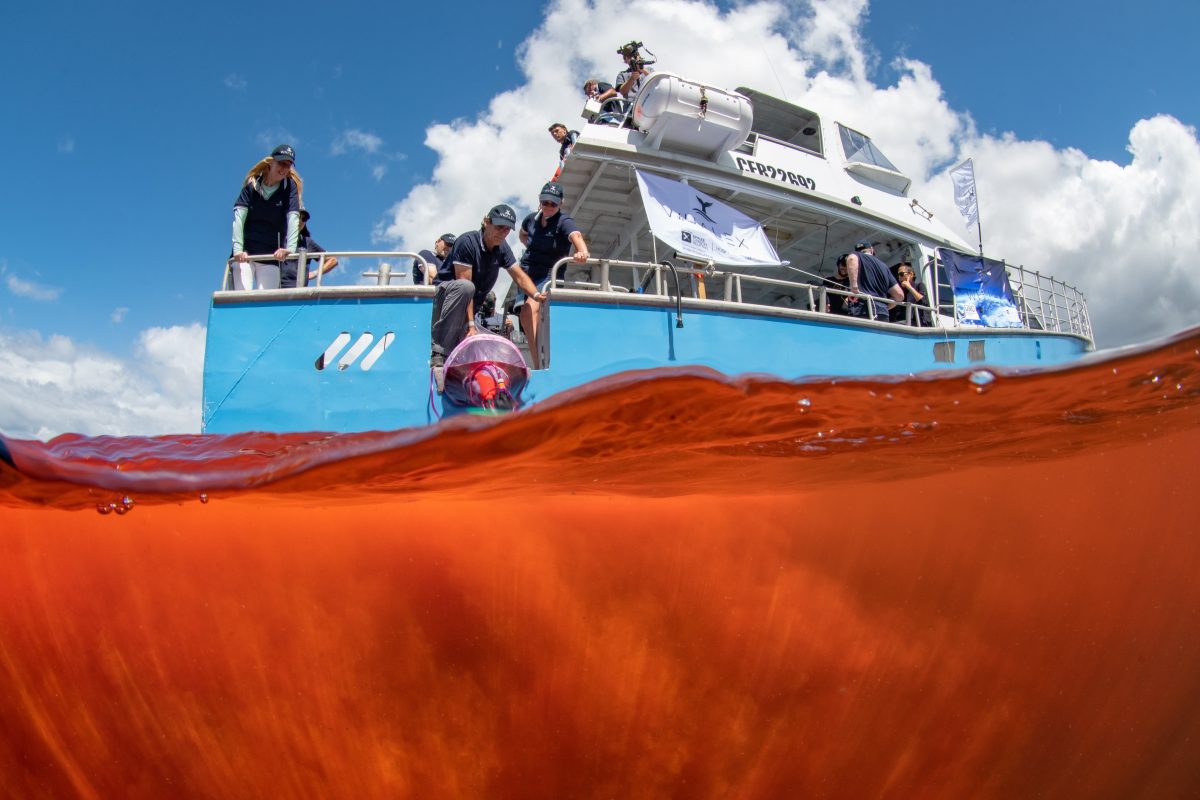
The WhaleX team is using synthesised whale excrement to stimulate the growth of oxygen-producing, carbon-capturing phytoplankton.
Kirsty and Joe said they themselves were enraptured in the discoveries they made during the filming process.
“We were surprised at how crucial a role whales play in the carbon cycle,” Kirsty said.
“The innovative approach the WhaleX team has taken to restore the cycle through whale poo is an out-of-the-box approach, but the calculations all add up. This is really exciting and inspiring stuff, and it was a great honour to get that story out.”
Joe says while it all seemed strange and improbable on the surface, once they delved into the science, the feasibility astounded them.
“You see that this is a real, solid solution – so to speak – and it’s very scaleable,” he said.
“The scientists and engineers detail how they can repurpose existing oil rigs and ships already in oceans and, distributing artificial whale poo nutrients utilising that infrastructure, are ready to go.
“There is nothing left unanswered here. All they need is funding, because work in the deep ocean is expensive.”
The film’s breathtaking visuals and narrative are not just a cinematic experience but also a call to action for environmental sustainability. What’s more, the engineers and scientists behind it are carrying out their work with a low carbon footprint.
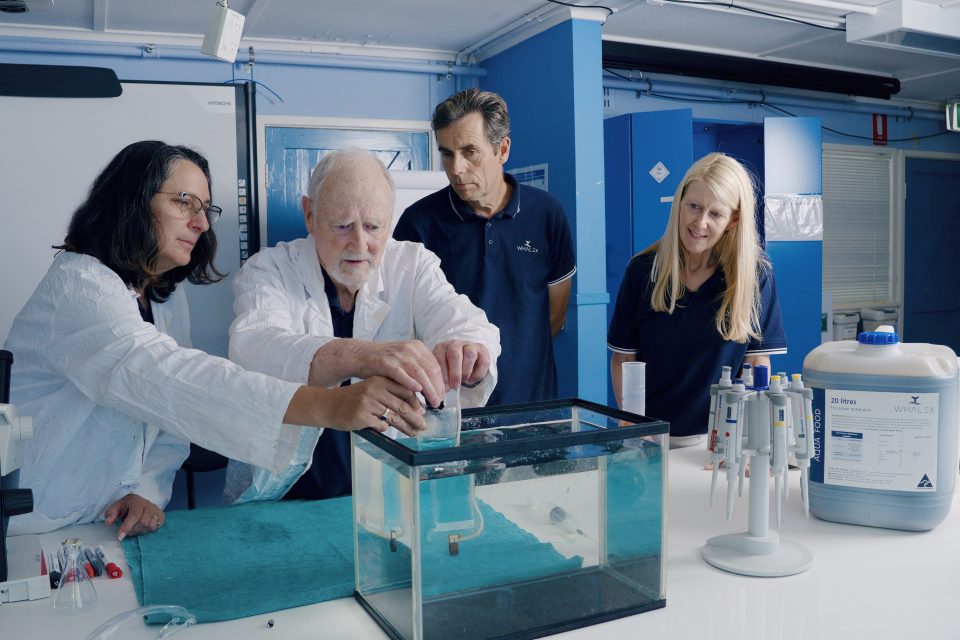
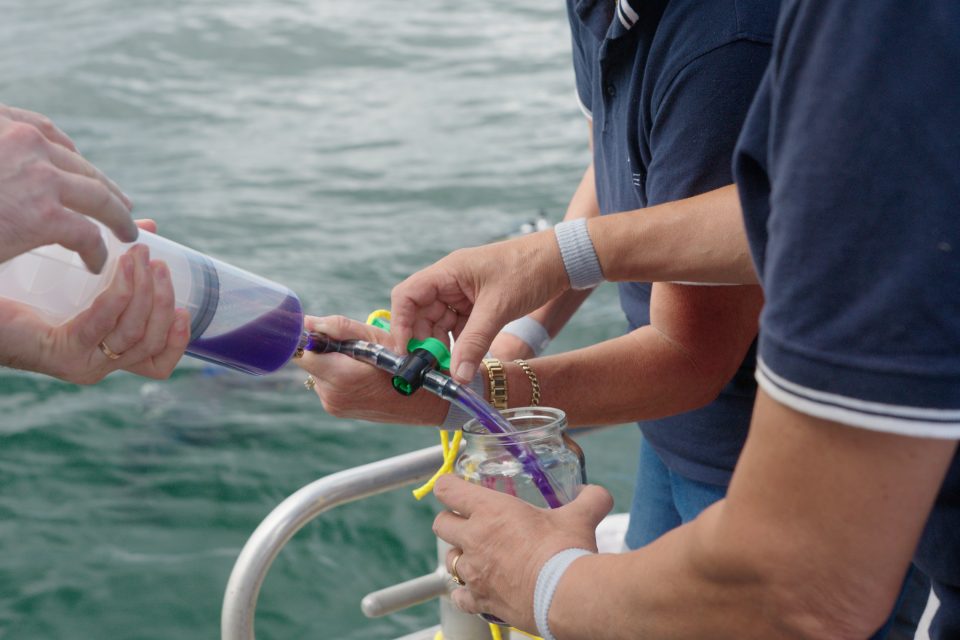
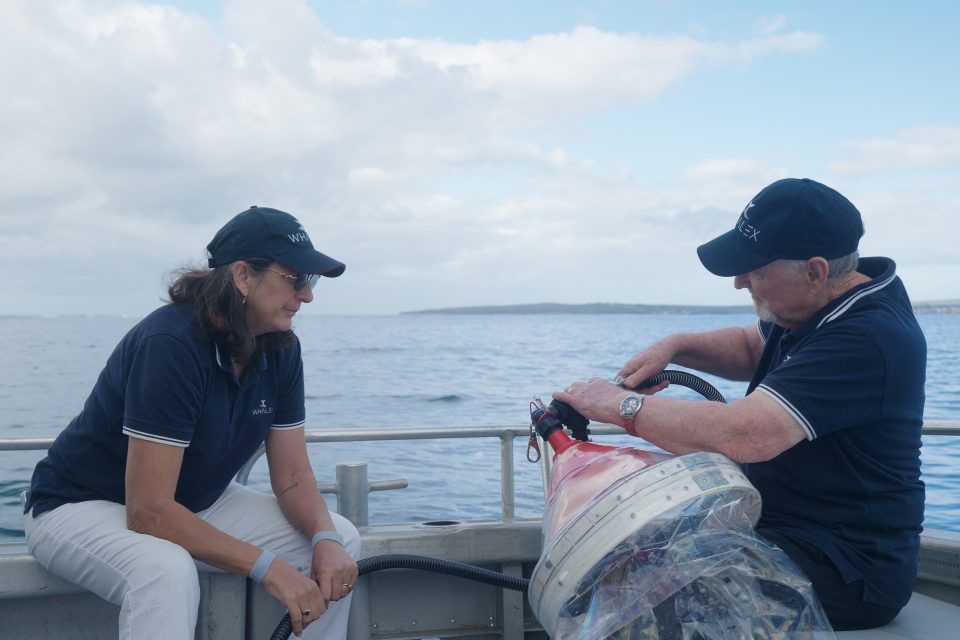
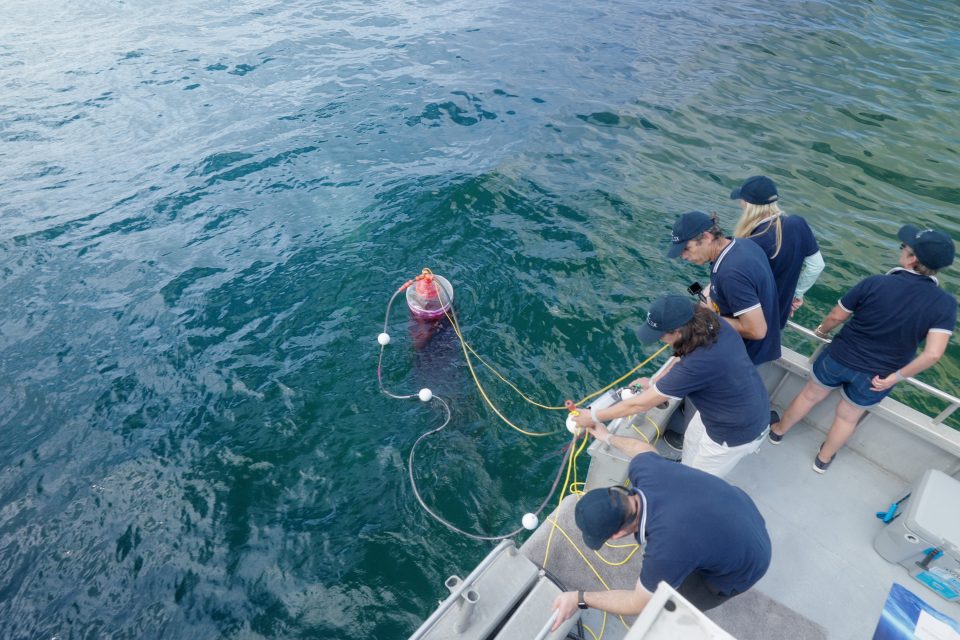
It’s one of the reasons Painting in Pictures landed the gig. The Thirroul-based business is known for its commitment to telling stories that matter, with a low carbon footprint, as is evident in its collaboration with notable organisations like the BBC and Bloomberg.
The low-carbon approach is a pivot the team made several years ago.
“We noticed at a lot of film sets and productions we’d worked on, there was so much waste, and it really bothered us,” Kirsty said.
“Then we started filming a documentary in Borneo and that was just the two of us. We realised how little we actually needed to produce high-quality work.”
“We started measuring our carbon and making certain business choices – like using renewable energy whenever possible and choosing services that are moving away from fossil fuels and only investing in renewables,” Joe added.
“We went down a rabbit hole and you can’t go back from there.
“I think it’s one of the reasons we have won a lot of the work we have with environmentally-conscious clients like the BBC but beyond that, even if weren’t attracting those jobs, this is the choice we’ve made in life and in our work.”










